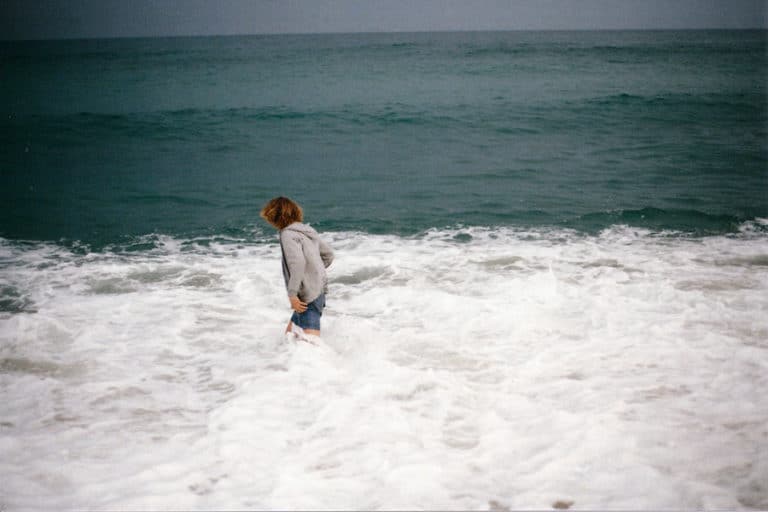The reporting of Noa Pothoven’s euthanisation was fake news, so what really happened?

Last week, a polemical news story hit the headlines of numerous international newspapers, only to be later proved incorrect. Newspapers circulated the tragic report of the death of seventeen-year-old Dutch Noa Pothoven, who according to many imprecise articles decided to get euthanised after suffering from a severe mental illness that was affecting her since she was molested as a child and raped as a teenager.
The truth behind this story is that Pothoven, after years of suffering from depression and anorexia following the abuses, and attempting suicide several times, died in her house because she stopped eating and drinking. The fake rumours were therefore cleared and the articles corrected. It turned out this was never a case of euthanasia or assisted suicide, but indeed a case of cohesive non-intervention from Pothoven’s carers and family. Noa Pothoven’s parents and the doctors did not interfere with her choice to let herself die, and did not force treatments on her in order to save her—procedures they had already attempted in the past.
Despite the quick amendments made by the newspapers who circulated the incorrect news, the sensitive nature of both the real and the inaccurate stories sparked a wave of public outrage; awakening the delicate argument that still surrounds euthanasia and mental health. The moral, as well as legal, acceptance of both euthanasia and assisted suicide is still up for debate in most European countries, and it gets even more challenging when it doesn’t involve a terminal physical illness but a psychiatric disorder instead.
To give a bit of context, active euthanasia, which involves doctors ending a person’s life, has been legal in the Netherlands since 2002 (with Belgium being the only other country in Europe where it is legal), while assisted suicide is also legal in Germany and Switzerland. Both procedures follow very strict guidelines, among which is the requirement that the patient’s suffering is intolerable and without the possibility of recovery, with an age limit of twelve to sixteen-years-old. A 2017 report shows that from the six thousand people who died from euthanasia that year in the Netherlands, only 1 percent had a psychiatric disorder, and only one person was underaged.
Last December, Noa Pothoven told De Gelderlander, a Dutch newspaper, that she did contact an ‘end-of-life’ clinic in 2017 without her parents knowing, but that her request was declined because at the time she was underaged and required her parents’ consent. “They think I should finish my trauma treatment and that my brain must first be fully grown. That lasts until your 21st birthday. It’s broken me, because I can’t wait that long”, she told the newspaper. This event might have contributed to the build-up of the circulation of the fake news, which, according to numerous sources, was initially circulated by the newswire Central European News and later sensationalised by both British and other European newspapers.
In Denmark, the whole story did not make headlines, while in England the Daily Mail, alongside other news platforms triggered a fake news domino effect which reached its peak of controversy in countries like Italy. Politicians rushed into quick opinionated commentaries on the morality behind euthanasia, and even the Pope intervened by tweeting that euthanasia and assisted suicide are everyone’s defeat.
Euthanasia and assisted suicide are a defeat for all. We are called never to abandon those who are suffering, never giving up but caring and loving to restore hope.
— Pope Francis – ARCHIVE (@Pontifex266Arch) June 5, 2019
The news that shocked the world in the last few days is without a doubt a complex, painful, and sensitive story on many different levels. It is about abuse, trauma, mental health treatments, incredible pain, and eventually a young person choosing not to live anymore. So if on the one hand it uncovered the ease with which incorrect news could spread in international newspapers, the greed for click bait news, and the inaccuracy of certain sources, on the other hand it brought to the surface an unsolved issue in today’s society, one that involves the fragile matter of euthanasia and mental health disorders—and the way they are understood and treated.
In many European countries, we still lack the tools to understand not only euthanasia and assisted suicide, but the complexity and depth of mental illnesses, and this half fake story just proved how unprepared we are as a society to grapple with these topics. In a moment when the freedom of choice over one’s body (thus their life) is still threatened on a daily basis in many parts of the world, Pothoven’s case brings up another dividing issue that we haven’t fully faced: one that goes beyond having the freedom of choosing how to live, but that involves the freedom of how—and under what circumstances—we die. Despite the inaccuracy of the initial account, this tragic story touched upon a concept that is one of society’s ultimate taboo, which is people’s control over their own death and suffering and the role that the government and the civil institutions have in it.




